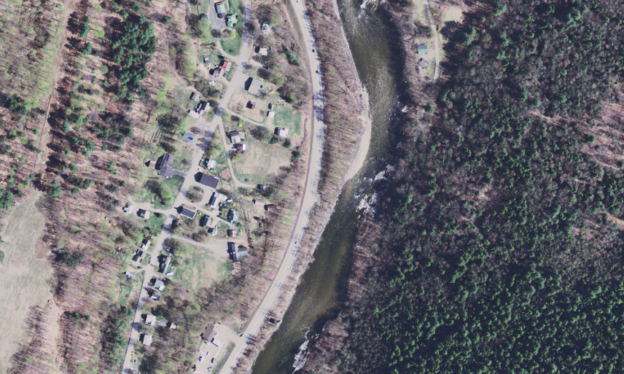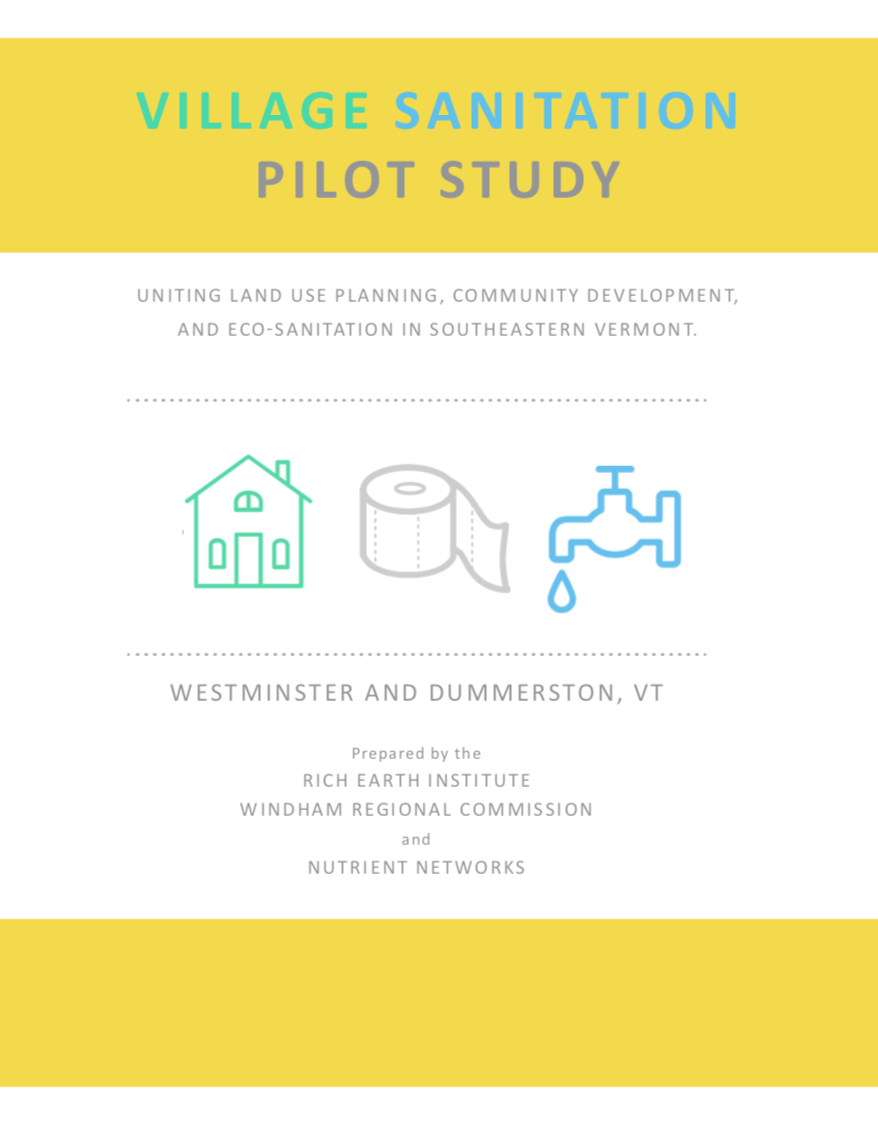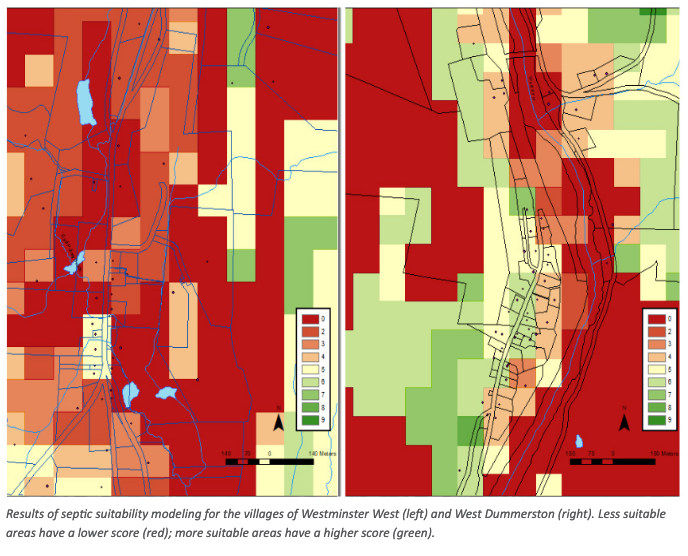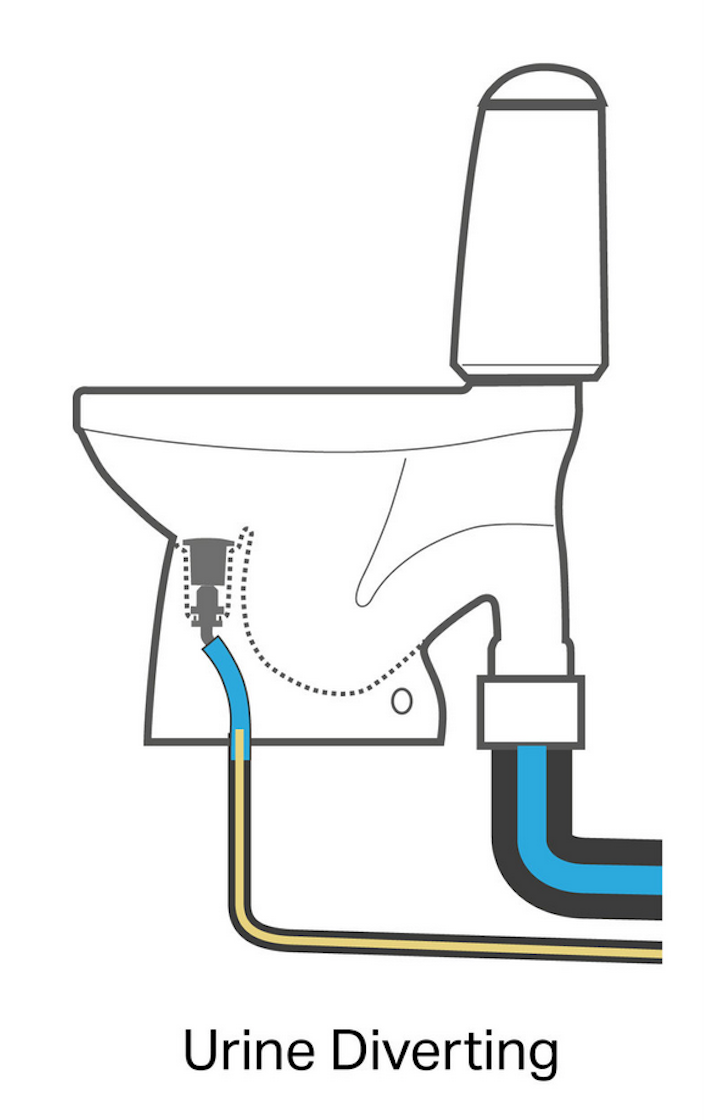Back to all articles
New Publication! Village Sanitation Pilot Study

We recently completed a report  summarizing the Village Sanitation Pilot Study that we conducted in partnership with the Windham Regional Commission and Nutrient Networks. For this project, we looked at ecological sanitation options for the villages of Westminster West and West Dummerston, VT. Both of these villages have septic system challenges and goals for compact village development in the future. We explored the feasibility of innovative wastewater solutions to respond to these aims.
summarizing the Village Sanitation Pilot Study that we conducted in partnership with the Windham Regional Commission and Nutrient Networks. For this project, we looked at ecological sanitation options for the villages of Westminster West and West Dummerston, VT. Both of these villages have septic system challenges and goals for compact village development in the future. We explored the feasibility of innovative wastewater solutions to respond to these aims.
Directing growth into compact village settlements rather than suburban sprawl is a major goal for many Vermont villages. But most of these villages still rely on septic systems which can be difficult or impossible to expand and are thus often the largest barrier to increasing housing density in village centers. Septic systems can also impact both environmental and public health by releasing nutrients and pathogens to groundwater. Climate change may exacerbate each of these challenges while also increasing growth pressure on villages.

We conducted site visits with homeowners in each village to explore a variety of composting and urine-diverting toilet systems. Through this collaborative process, we concluded that urine diverting flush toilets are one of the  more feasible options for retrofitting existing buildings. In addition to reducing nutrient pollution in wastewater by capturing nutrients for fertilizer, they also reduce the volume and strength of wastewater. However, the exact effects of urine diversion on septic system performance is not well understood, and more research is needed to understand how urine diversion could help with septic siting challenges in Vermont villages.
more feasible options for retrofitting existing buildings. In addition to reducing nutrient pollution in wastewater by capturing nutrients for fertilizer, they also reduce the volume and strength of wastewater. However, the exact effects of urine diversion on septic system performance is not well understood, and more research is needed to understand how urine diversion could help with septic siting challenges in Vermont villages.
Composting toilets have an even greater impact on the volume and strength of wastewater and Vermont allows a reduction in septic leach field size where composting toilets are installed. However, they’re often less feasible because many historic buildings lack adequate basement or crawlspace to install large composting units. While smaller composting toilet systems could work, participants were concerned about greater maintenance needs–especially people planning on aging in place. But in other situations, they can be a great option.
This study enabled us to delve deeply into the connections between eco-sanitation, community development, and environmental health. There was significant community concern about wastewater issues and interest in eco-sanitation options. Many of the study participants are eager to move forward with installing urine diverting flush toilets. These pilot installations will be the next step in assessing the potential of eco-sanitation to address village wastewater needs. Additional research and policy changes can build on these findings to ensure that eco-sanitation is part of the solution to Vermont’s village wastewater challenges.

